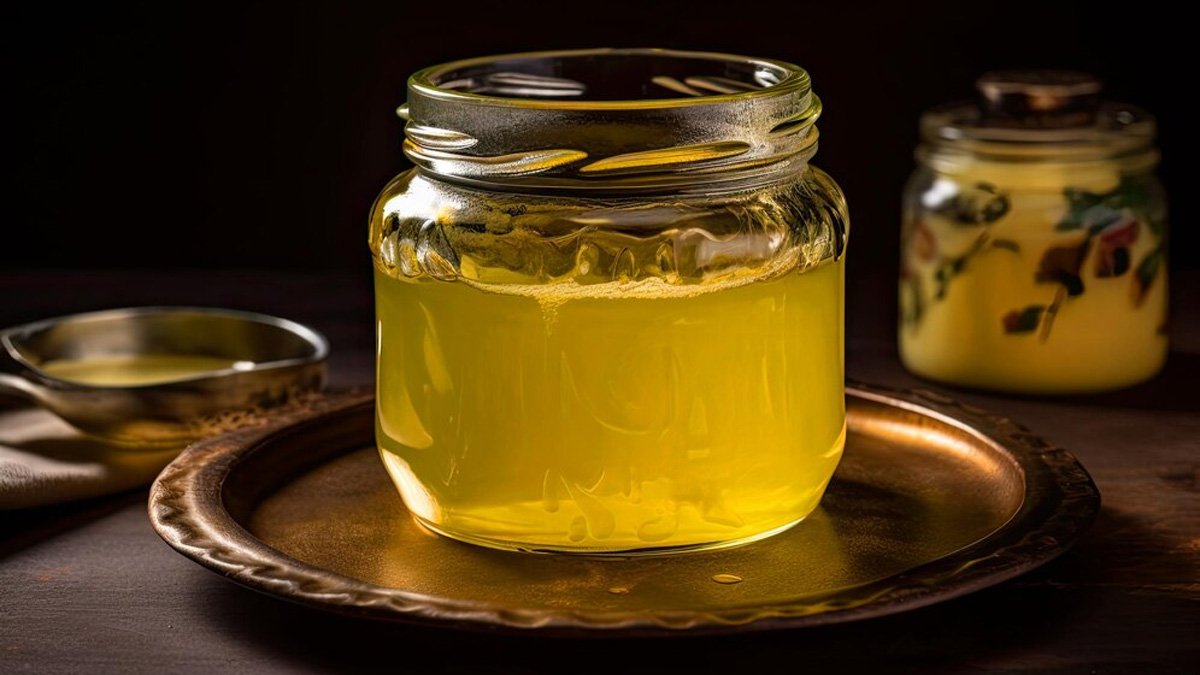
New Delhi recorded 16.5°C on Monday, the lowest recorded night temperature of the season. Although this dip in temperature is a much-needed relief from the excruciatingly high temperatures this summer, seasonal changes also bring a range of illnesses along with it. The good thing is, when it comes to battling common colds, coughs, and fevers, nature often provides us with simple and effective remedies.
Table of Content:-
One such age-old remedy is ghee, also known as clarified butter, which is a staple in kitchens across India. Beyond preventing and alleviating symptoms of flu or common cold, a study published by Gujarat Ayurveda University stated, 'A study on a rural population in India showed a significantly lower prevalence of coronary heart disease in men who consumed higher amounts of ghee.'
What Makes Desi Ghee an Effective Remedy?

Ghee is not just any fat like other oils, it's a superfood with unique properties that make it a valuable tool in your battle against illness. Here's why ghee is an effective remedy:
- Rich in Nutrients: Ghee is packed with essential nutrients, including vitamins A, D, E, and K, as well as healthy fatty acids. These nutrients support your immune system and help your body fight off infections.
- Anti-Inflammatory: Ghee has natural anti-inflammatory properties, which can help reduce inflammation in your respiratory system and soothe irritated throat and lungs.
- Antimicrobial: Ghee contains a natural antimicrobial compound that can help combat bacteria and viruses responsible for colds and coughs.
Also Read: Consuming Ghee On An Empty Stomach: Here's What You Need To Know
Ways to Use Ghee for Cold, Cough, and Fever
Beyond its nutritious bounty, desi ghee is also a carrier oil, which means it is the perfect base for you to avail the benefits of additional herbal remedies that provide relief from congestion, cough, and fever.
Ghee and Black Pepper Tea
This combination of ghee and black pepper can help relieve congestion and ease a sore throat.
- Prepare a warm cup of herbal tea like ginger or chamomile.
- Add one to two teaspoons of ghee and a pinch of black pepper.
- Stir well and drink while it's warm.
Ghee and Turmeric Paste

Turmeric is well-known for its anti-inflammatory and immune-boosting properties, while ghee helps your body absorb the curcumin in turmeric. Curcumin helps to manage oxidative and inflammatory conditions, metabolism, arthritis, and anxiety.
- Mix a teaspoon of ghee with a pinch of turmeric powder to form a paste.
- Consume this paste daily to boost your immune system.
Ghee Steam Inhalation
Ghee-infused steam can provide relief from nasal congestion and ease breathing difficulties. You can use this method regularly as a precautionary measure or when you have caught a cold.
- Boil a pot of water and remove it from the heat.
- Add a teaspoon of ghee to the hot water and carefully inhale the steam.
Ghee for Cough Relief
Before bedtime, consume a teaspoon of ghee mixed with a little honey. This soothing concoction can help alleviate nighttime coughing and provide a better night's sleep.
Also Read: Benefits Of Ghee For New Mothers: Here's How You Can Shed Post-Partum Weight With Ghee
Ghee Foot Massage
This practice is hailed by Ayurveda as it is believed to help reduce fever and promote relaxation.
- Apply warm ghee to the soles of your feet before bedtime.
- Cover your feet with socks and leave them overnight.
In conclusion, incorporating these smart ways to use ghee into your wellness routine can help you harness the natural healing power of this versatile ingredient. Ghee is a time-tested remedy that can provide relief from cold, cough, and fever symptoms. So, the next time you're under the weather, consider turning to this age-old remedy for comfort and relief. However, it's essential to remember that it's not a replacement for professional medical advice and treatment. If your symptoms persist or worsen, consult a healthcare professional.
Also watch this video
How we keep this article up to date:
We work with experts and keep a close eye on the latest in health and wellness. Whenever there is a new research or helpful information, we update our articles with accurate and useful advice.
Current Version